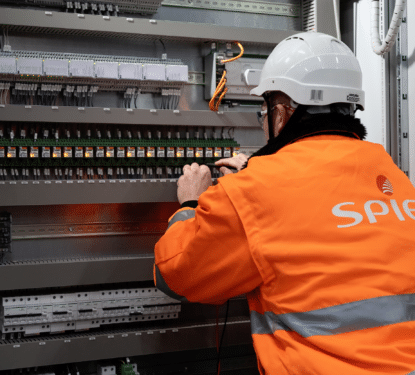Boston-based building efficiency intelligence company, Retroficiency, has been acquired by Ecova, which describes itself as a “total energy and sustainability management” firm. Terms weren’t disclosed.
Retroficiency developed software that remotely evaluates a building’s energy consumption and potential for efficiency upgrades at an unmatched speed and scale, as well as helping real-estate managers conduct on-site energy audits.

The company was founded in 2009 and raised $7.3 million from investors including World Energy (now EnerNOC), Point Judith Capital and angel investors. Retroficiency started out selling its software to real estate firms, commercial property owners, and energy service companies. About two years ago, it shifted to selling mostly to utility companies.
Ecova will leverage Retroficiency’s deep expertise and innovative patent-pending technology in building data analytics to drive energy savings and engagement for commercial and industrial customers, both through utilities and directly.
“This acquisition strengthens Ecova’s ability to combine data and technology, with people and insight, to drive powerful results for utility customers, commercial clients and the environment”, said Jana Schmidt, president and CEO of Ecova. “It also emphasizes Ecova’s commitment to analytics-driven customer engagement for utilities; and enhances Ecova’s dedication to help commercial clients reduce energy consumption across their portfolio of sites”.
Last year, in an effort to gain a deeper understanding of how buildings consume energy and the energy efficiency opportunities they present, Retroficiency launched their Building Genome Project. The project combines publicly available building data with advanced analytics to create each building's genome. These genomes are used to develop energy models, which estimate how each building consumes energy and determine how each could save energy.
In its first report, the project mapped the genomes of more than 30,000 commercial buildings in New York City and ran three energy-saving scenarios to demonstrate their impact on the portfolio. They determined that turning the thermostat by one degree more than the usual could save an estimated $145 million.
The US faces a bit of a logistical conundrum in trying to bring efficiency to its buildings. If every energy auditor in the US worked 24 hours a day, it would take about 22 years to analyse all buildings. Early this year, Memoori published an in depth study into the market for Big Data and Data Analytics software for Smart Buildings. The market is growing from a 2015 value of $13.35 Billion to over $32 Billion by 2020.
[contact-form-7 id="3204" title="memoori-newsletter"]
The utility industry is more dynamic than ever before. Ecova last year itself was purchased by Cofely USA, a subsidiary of the French utility giant ENGIE, previously GDF Suez.
Utilities are eager to enhance customer satisfaction and engagement efforts in order to meet increasing energy savings expectations while also successfully navigating a changing landscape, as renewables, distributed energy, and smart buildings provide the real possibility of market disruption.
Utilities, or utility spin-off companies like Cofely, bring a broader, deeper channel and level of expertise to the effort. Data analysis and efficiency programs can be bundled into existing services. Data services can also make those customer engagement programs much more compelling.
The deal opens the door for Ecova to offer non-traditional digital intelligence to utilities as well as commercial and industrial building owners, and managers. Using analytics, Ecova can better isolate where to focus its efforts. Meanwhile, Retroficiency gains Ecova’s ability to cultivate a relationship with the customer and scope for greater energy savings overall.



